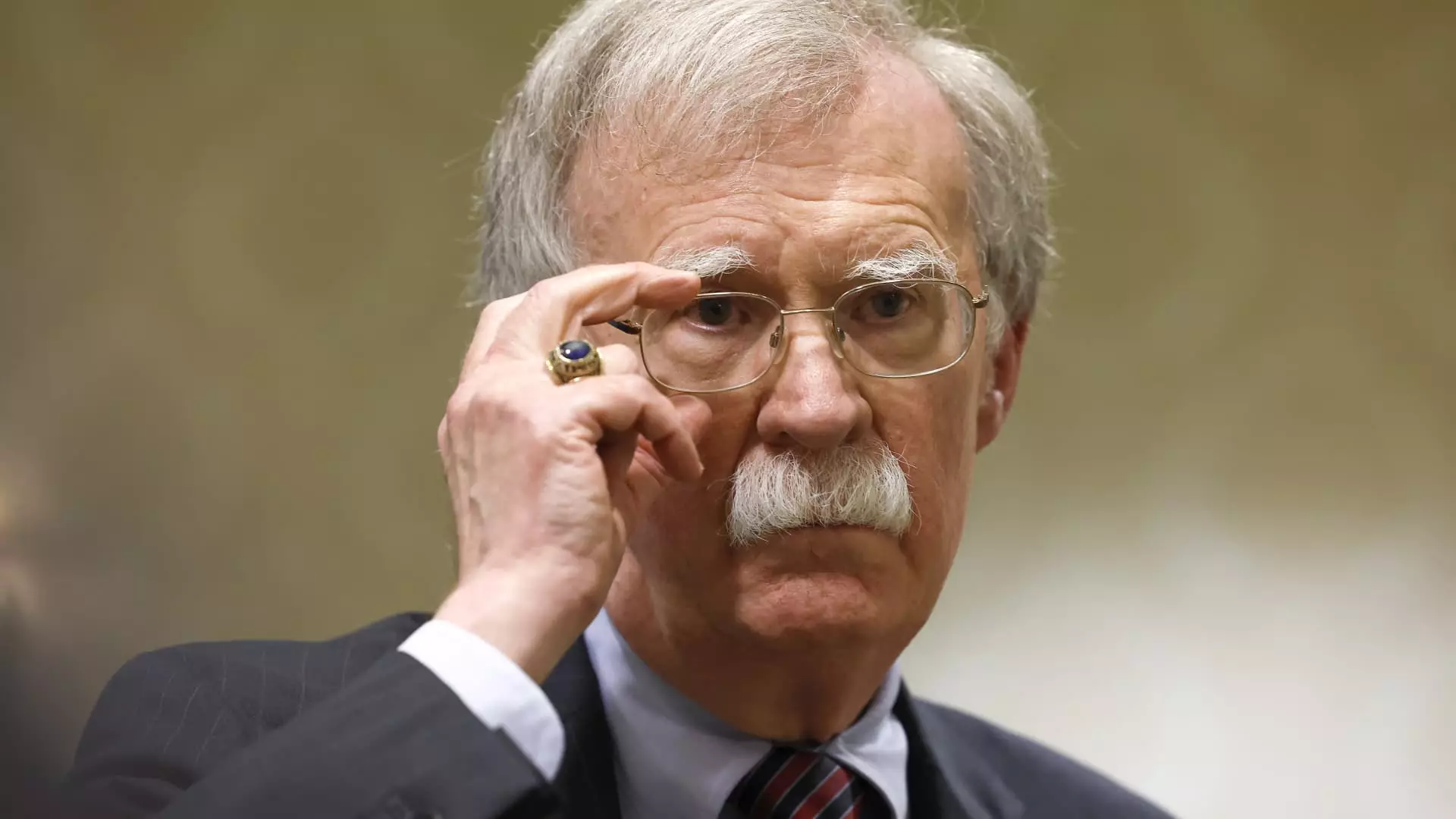When the Trump administration initiated blanket global tariffs, intended to realign trade relationships and challenge aggressive practices by nations like China, it seemed to many like a catalyst for a far-reaching trade war. Former national security advisor John Bolton provides a strong criticism of this approach, highlighting how it not only threatens to destabilize alliances but effectively strengthens the position of adversaries. This reckless strategy, rooted in a misguided belief that tariffs alone could rectify long-standing trade injustices, manifests a grave misunderstanding of international trade dynamics.
Despite Trump framing this tariff initiation as “liberation day,” the irony is deeply unsettling. A unilateral approach to imposing sweeping tariffs on allies and foes alike inevitably churns uncertainty in the global marketplace. Bolton articulates a pressing concern: inflicting economic pain on longtime allies may inadvertently empower a nation like China, from whom a nuanced, collective response could have yielded more significant results. The collateral damage inflicted by such tactics reveals the unpredictability of a strategy that lacks both foresight and nuance.
A Misguided Approach to Economic Strategy
At the core of Trump’s tariff policy are unfounded calculations about trade deficits, which economists have dismissed as insufficiently grounded. The decision to slap a blanket 10% tariff indiscriminately failed to acknowledge the complex ties that bind the United States to its allies. Instead of crafting a cohesive strategy aimed at curbing China’s mercantilist behaviors, the administration’s actions sent shockwaves through global financial markets, erasing trillions in wealth and sending U.S. treasury yields soaring—a stark indication of the instability that follows such brash policy decisions.
What’s more troubling is the seeming lack of a broader economic strategy. Bolton aptly notes that if the goal were truly to address the inequities posed by China’s trade practices, a collaborative stance with countries like Japan and South Korea—who share similar grievances—would have been far superior. By alienating allies instead of rallying them to a cause, Trump’s approach has exacerbated the very problems it aimed to resolve.
The Global Backlash and Escalation
During this tumultuous period, international leaders have increasingly voiced concerns, characterizing Trump’s maneuvers as a harbinger of chaos. The backlash from leaders like French Prime Minister François Bayrou emphasizes a fraying of trust that had taken decades to build. When a U.S. president is seen as initiating a “hurricane” in the world of trade, the fallout is bound to affect diplomatic relations and economic stability for years to come.
Moreover, the tit-for-tat escalation between the U.S. and China has spiraled into an economic game of chicken, where prices on household goods and consumer electronics soar, sparking inflationary pressures that disproportionately affect average American families. As tariffs rise to crippling levels—145% on Chinese imports, for instance—the question arises: who truly bears the burden of this misguided economic warfare?
The Potential for a New Economic Order
Amidst this chaotic backdrop, China appears to be regrouping and positioning itself as a vital player within the global economy. Xi Jinping’s diplomatic charm offensive throughout Southeast Asia bears testimony to a strategic pivot aiming to cultivate relationships that could bolster China’s standing in international affairs. Bolton’s assertion that Trump’s tactics might push nations that once looked to the United States for guidance toward forming a common front against American policy encapsulates the strategic blunder this administration has committed.
In the absence of serious engagement, countries that are economically intertwined with the U.S. may increasingly see China as a viable alternative. This shift could dismantle much of what has been the U.S.’s hegemony in global trade and diplomacy since World War II—a highly dangerous and unfavorable outcome resulting from a myopic strategy.
As Bolton suggests, the credibility and trust that the U.S. has painstakingly cultivated over decades are being shredded in a matter of years, potentially leaving American interests compromised on multiple fronts. This calls for an immediate reassessment of one’s approach to international relations, as the potential ramifications of an increasingly isolated and antagonistic United States could reshape the global order fundamentally.
A Call for Economic Coherence
To navigate these treacherous waters, there needs to be a reimagining of economic diplomacy. Relying on unilateral tariffs without a cohesive, multilateral strategy will only exacerbate existing trade tensions and economic disparity. A collective stance against predatory behaviors from nations like China—built on collaboration rather than antagonism—could enable the world to confront these challenges more effectively.
The convoluted narrative driven by Trump’s administration may have ignited a spending and diplomatic frenzy, but it has simultaneously shown the need for a more astute economic policy moving forward. An abandonment of the current tariff approach in favor of regenerating trust and building alliances will not only serve American interests better but also contribute to a more balanced and fair economic landscape internationally.

